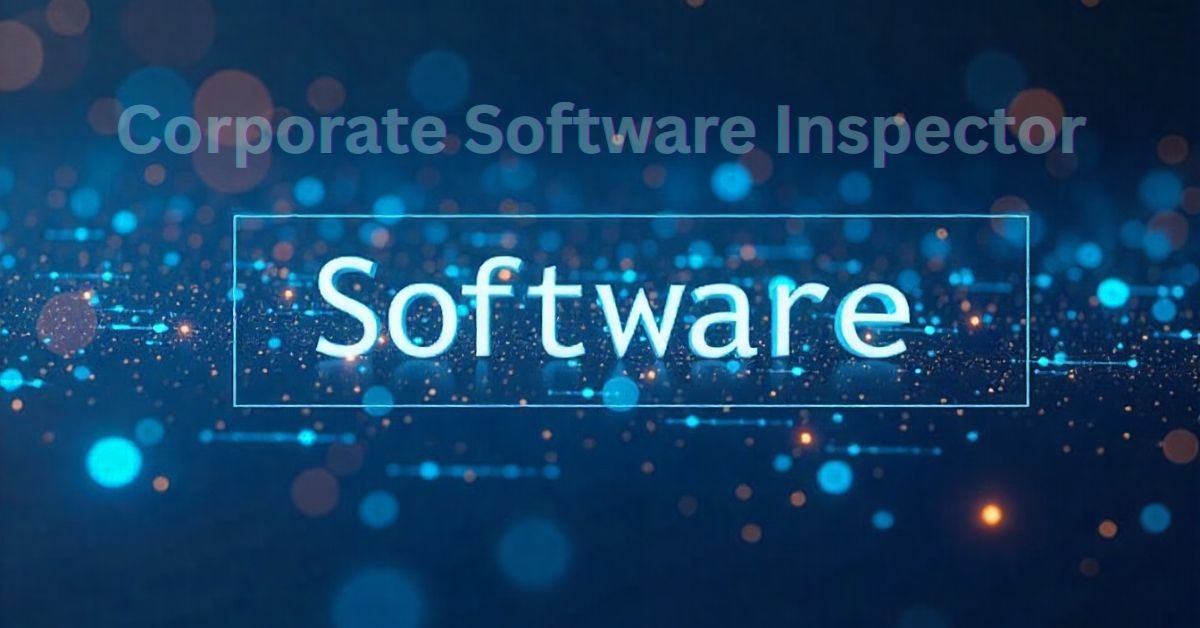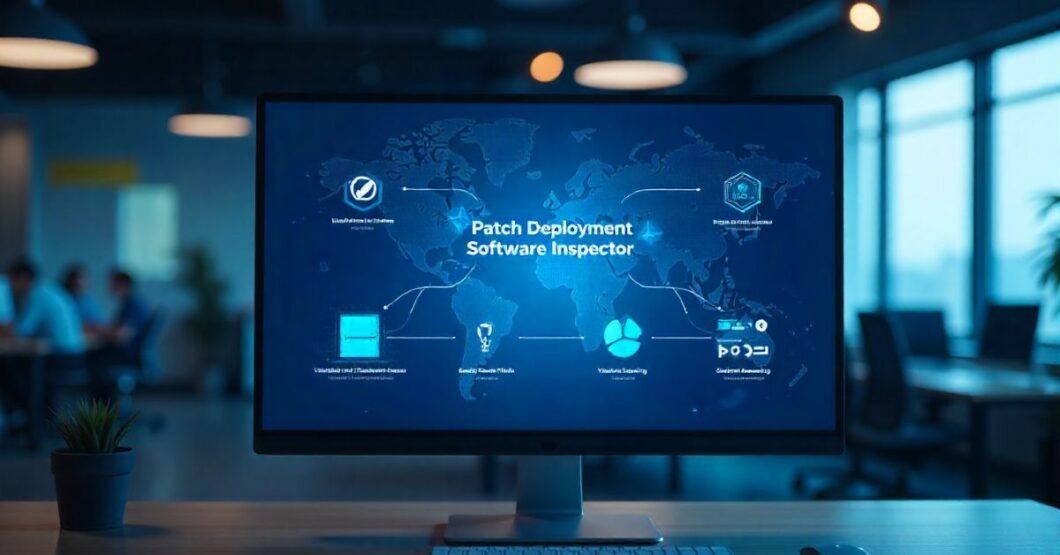Introduction
Modern enterprises juggle hundreds of applications and thousands of endpoints—across macOS, Windows, and Linux. Each app is a potential security weak point. In 2025, with cyber threats growing more sophisticated, traditional patching and manual audits aren’t enough.
Organizations need a tool that doesn’t just monitor but prioritizes, automates, and integrates. That’s where Flexera’s Corporate Software Inspector comes in.
In this comprehensive guide, we’ll break down what Corporate Software Inspector is, how it works, and why it’s becoming one of the most reliable vulnerability management solutions today.
What is Corporate Software Inspector?
Corporate Software Inspector (CSI) is a modern vulnerability and patch management solution from Flexera. It scans devices for known software vulnerabilities, suggests and schedules fixes, and integrates with tools like Microsoft SCCM, WSUS, and other systems for streamlined remediation.
Core Highlights:
- Performs automated scans for outdated software
- Maps findings to CVE/CVSS vulnerability standards
- Supports Windows, macOS, and Linux endpoints
- Enables automated patch deployment
- Offers risk-based prioritization to focus on the most critical issues
Unlike basic inventory tools, CSI helps teams take action, not just collect data.
Key Features: Making CSI Stand Out
Many tools claim to solve patch management, but few deliver actionable intelligence with automation. Here’s what makes Flexera’s tool different.
Smart Vulnerability Management:
- Scans software against a globally updated vulnerability database
- Flags: zero-days, EOL apps, and unpatched CVEs
Flexera-Powered Patch Delivery:
- Leverages SmartPatch™ technology to recommend updates intelligently
- Allows scheduling during low-impact operational hours
Enterprise-Grade Control:
- Detailed dashboards for risk scoring, compliance status, and inventory maps
- Fully customizable alerts and reporting
Who Uses Corporate Software inspectors (and Why)?
Corporate Software Inspector is designed for organizations that need secure, compliance-driven software environments without expanding headcount.
Common Use Cases:
- Enterprises with 500+ endpoints are seeking automated patching.
- Institutions managing compliance (PCI, HIPAA, SOX)
- MSPs manage multiple clients’ infrastructure.
- Universities or public sector bodies with limited security staff
Example: A government agency used CSI to reduce manual patching from 250 hours/month to 40.
| Sector | How CSI Helps |
|---|---|
| Finance | Compliance visibility, fast remediation |
| Healthcare | Patch medical software to reduce risks |
| Retail | Prevent POS system vulnerabilities |
| Tech/MSPs | Integrate with existing SCCM tools |
Integrated With What You Already use.

One major strength of CSI is its ability to integrate with widely used platforms.
Supported Integrations:
- Microsoft SCCM: Sync patch priorities and automate deployments
- WSUS: Connect CSI patch logic with Microsoft’s update catalog
- SIEM/SOAR tools: For alert-based automation (Splunk, Azure Sentinel)
| Tool | CSI Integration Outcome |
|---|---|
| SCCM | Auto-import updates, distribute quickly |
| Custom Dashboards | Connect via APIs for KPI visibility |
| Endpoint Security Suites | Reduce redundant alerts & patch gaps |
This makes CSI easy to adopt within existing IT ecosystems, avoiding retraining or process disruption.
Real-World Vulnerability Scanning & Prioritization
Let’s understand how CSI assesses and sorts vulnerabilities.
CVE-Based Risk Assessment:
- CVE scoring based on CVSS v3.1 metrics
- Highlights actively exploited or high-severity flaws
- Suggests impact-based patching to reduce downtime
Risk-Based Prioritization Includes:
- Software exposure on several devices
- Exploitability in the wild
- Data sensitivity linked to affected software
| Patch Priority | Example Situation | CSI Action |
|---|---|---|
| Critical | Unpatched browser plugin used org-wide | Push update immediately |
| Medium | Local utility on few endpoints | Schedule regular patch |
| Low | Unused/legacy software | Plan removal or EOL patch |
Case Study: Retail Across Regions
A global retail firm with operations in 18 countries and 20,000+ endpoints faced constant delays in applying patch updates—often due to coordination gaps and manual processes.
CSI Made the Difference:
- Central dashboard enabled country-local IT visibility
- Patching delays were reduced from two weeks to two days.
- Achieved 97% remediation coverage in the first quarter
Their IT director noted:
“Corporate Software Inspector gave us insights and automation without the need for new infrastructure.”
How CSI Compares to Other Patch Tools
Let’s see how Flexera’s offering stacks up against others.
| Feature | CSI (Flexera) | Qualys VMDR | Ivanti Patch |
|---|---|---|---|
| CVE-based Prioritization | ✅ | ✅ | ✅ |
| Patch Deployment Engine | ✅ Native/Integrated | ⚠️ External | ✅ |
| SCCM/WSUS Integration | ✅ Deep | ⚠️ Light | ✅ |
| Real-Time Reporting | ✅ | ✅ | ✅ |
| Mac, Linux, Windows Support | ✅ Full | ✅ | ⚠️ Partial |
| AI-driven Patch Suggestions | ✅ SmartPatch™ | ❌ | ⚠️ Limited |
Common Challenges Without a Tool Like CSI
If you’re still relying on spreadsheets, manual updates, or your team remembering which CVEs are critical, you’re likely exposed.
Common Risks:
- Missed updates = open attack surfaces.
- Patch blind spots lead to audit failures.
- Human factors delay critical vulnerabilities
CSI Solves This By:
- Automating every step post-approval
- Giving visual reports to see where gaps exist
- Let’s patch faster than exploits circulate.
FAQs
Is this software agent-based?
Yes, CSI deploys light agents for continuous scanability or can scan networks remotely depending on your setup.
Does it only patch Microsoft software?
No. CSI supports hundreds of third-party apps, including browsers, Java, Zoom, Adobe, and more.
What’s the difference versus WSUS alone?
WSUS only patches Microsoft apps. CSI uses vulnerability intelligence and cross-platform automation.
Is it cloud-based?
Flexera supports cloud-hosted or on-premises deployment models.
How often is the database updated?
Flexera updates CSI’s vulnerability data daily using their global software insights lab.
Conclusion
Corporate Software Inspector isn’t just a tool—it’s a force multiplier for IT teams. It enables enterprises to manage vulnerabilities across Windows, Linux, and macOS, patch faster, and reduce exposure in a seamless, automated way.
It’s flexible, scalable, and integrates into existing systems like SCCM or WSUS—making it practical for both SMEs and global enterprises.
If you’re serious about staying secure, passing audits, and reducing operational risk, Corporate Software Inspector is a smart move forward.




